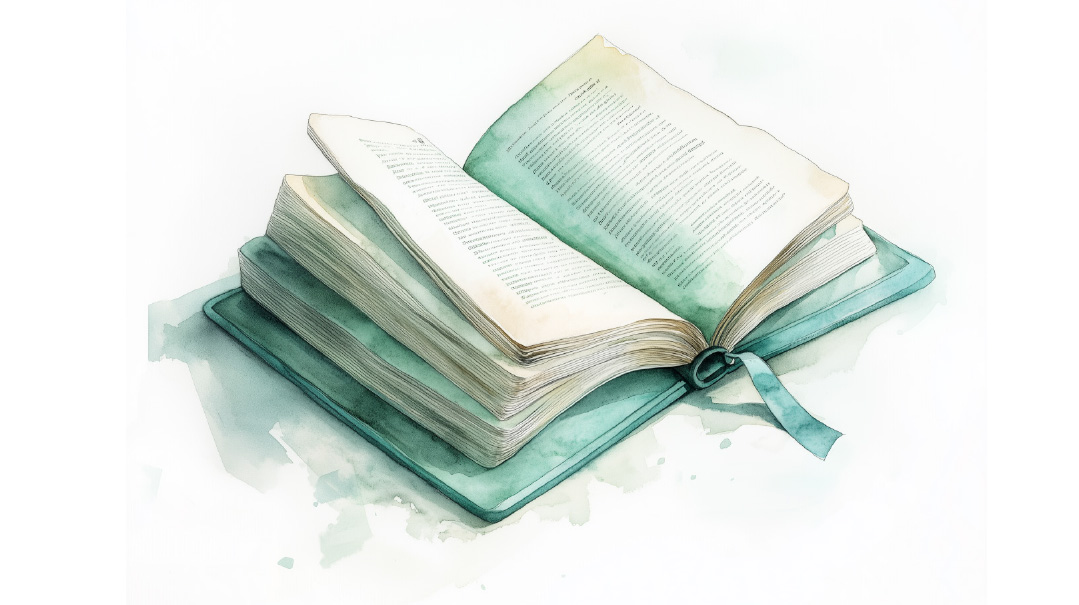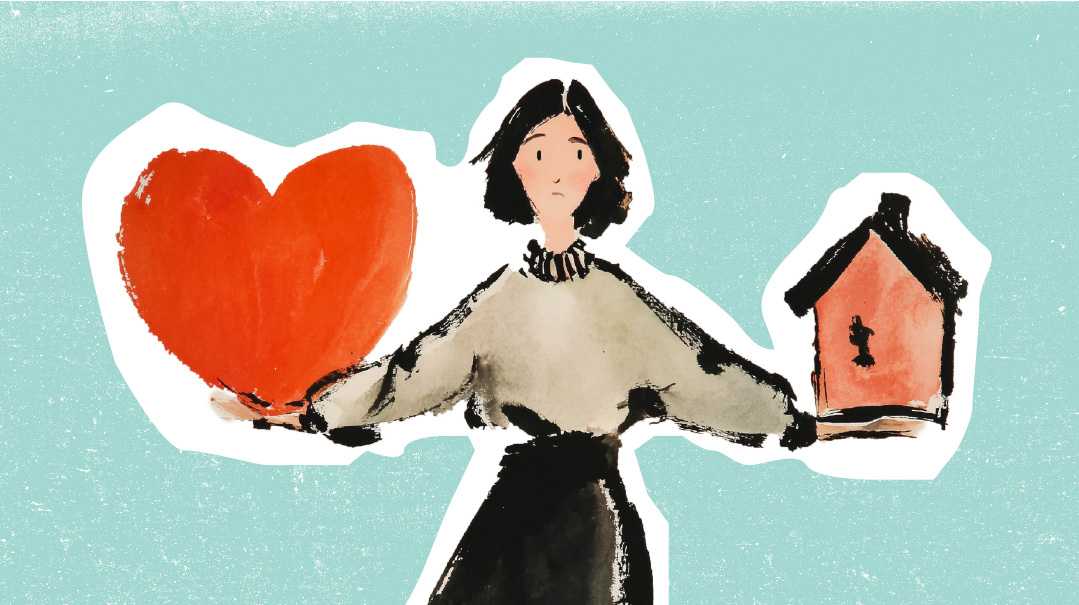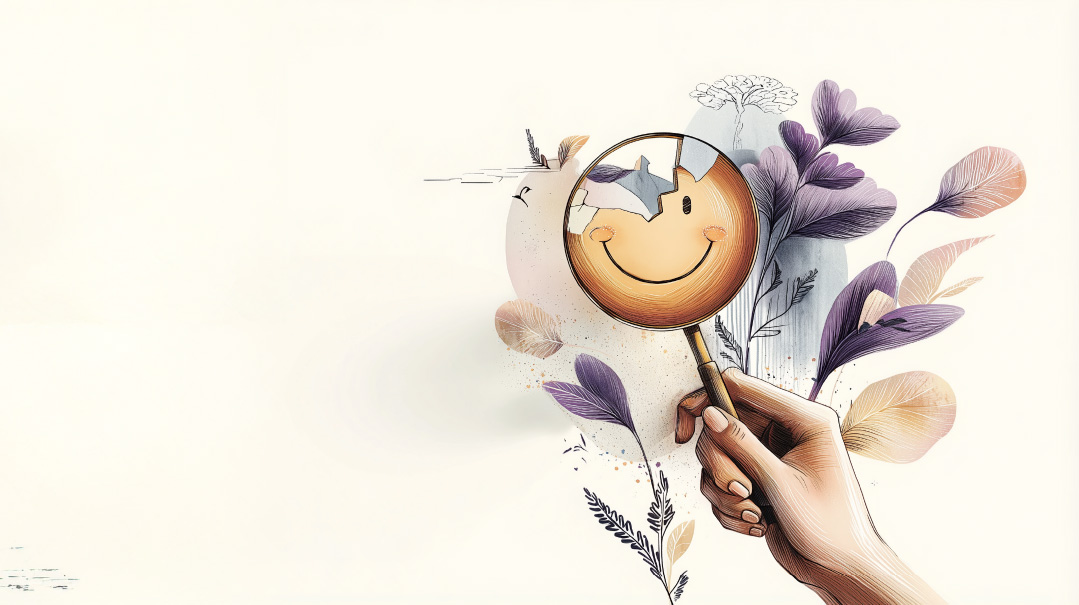“Does Worrying Mean I Don’t Have Emunah?”

“The only way to build the emunah muscle is to exercise it both in times of brachah and times of tzarah”

Facilitated by Faigy Peritzman
Over this past year I’ve been so worried about the war and concerned for everyone’s safety. At the same time, I’ve heard so many beautiful shiurim and thoughts about emunah and how everything is Hashem’s plan, and He only wants our good. While I believe all this to be true, I still worry. Does this mean I don’t have enough emunah?
1. Shevi Samet is a wife and mother, educator, kallah teacher, and Core MMC.
I “worried” about how to answer this question for some time before putting these thoughts into words. Does this mean I lack “faith” in my ability to answer this question? I don’t believe so. Rather, my apprehension is an antidote to ensure I answer you with the care this question deserves.
The same concept follows for your question. This answer is a nuanced idea that deserves more exploration, but my hope is that it can spur further reflection on the topic.
Your efforts to increase your emunah are admirable. Ultimately, the only way to build the emunah muscle is to exercise it both in times of brachah and times of tzarah.
Every day, we articulate among the 13 Ani Ma’amins that we believe with complete faith Hashem is the Borei (Creator), and Manhig (the orchestrator) of the entire world. Emunah is the belief that we’re in the best Hands possible, being cared for by the Creator Himself. We’ve all heard inspiring anecdotes about great people who didn’t worry because they believed wholeheartedly that Hashem was controlling everything. Yet these types of stories can leave us feeling confused and inadequate. Being concerned, we worry (ha ha), seems to be in direct opposition to this ideal.
But the fact that a nisayon can feel heavy doesn’t mean we don’t have emunah, although it may mean that there is still more emunah to develop.
More so, it’s actually our concern that motivates us. Worry is a gift from Hashem that allows us to invest in both ruchniyus and gashmiyus. We’re worried about our neighbor who’s struggling? So we organize a meal-train and recite Tehillim. Klal Yisrael is in the throes of yet another challenge and we feel fear? So we increase our chesed, give tzedakah, and pour our hearts out to Hashem. All of this exists in harmony with the knowledge that Hashem is running His world with exactness and kindness.
Having true emunah doesn’t mean we never worry; it means we know to Whom to turn with our concern. We trust that our worry isn’t too big for Hashem. While it may feel overwhelming to us, we can rely on Him to hold our apprehension-filled hearts.
Will such emunah always make us feel good and worry-free? Not always, no. Not everything that’s good for us will feel good to us. Believing in the goodness is a level to aspire to, but at its core, emunah means believing it’s from Him, however we label it.
2. Elisheva Kaminetsky is a wife, parent, grandparent, principal, adult educator, consultant, and kallah teacher.
We’re experiencing a time of incredible vulnerability, and when we’re uncertain, we naturally worry about what’ll happen in the future. When we don’t feel in control, we worry because we’re uncertain about the outcome.
A person worries about how events will unfold, what they’ll feel like, what the effects will be. Emunah is the understanding that Hashem’s always in complete control. A person can worry about things, but still know that Hashem’s in charge and things are under His control.
Dovid Hamelech, who faced many challenges and moments of vulnerability, expresses his relationship with Hashem in Tehillim (131:2): “I calmed and quieted my soul, like a nursing baby on its mother.”
Imagine a baby nursing contently from his mother; he’s relaxed and confident that his mother’s there to care for and protect him. Suddenly there’s a loud noise. The baby stiffens, stops nursing, and looks around. Then it returns to its secure nursing position.
The baby actually doesn’t know where the noise came from, if it’ll return, or what are the effects of that noise. All he knows is that he’s in his mother’s arms, and while he had that moment of worry, he’s confident his mother will continue to protect him.
There’s another aspect to Dovid Hamelech comparing himself to a baby. In times of crisis, we can’t expect to suddenly have wellsprings of emunah. Rather, these are muscles that need to be developed, perhaps as early as when we’re nursing babies, and certainly in our childhood. When children are blessed with a relationship where they can trust their parents, they may wonder what dinner will be that night, how it’ll taste, if they’ll like it… but they trust there will be food.
Megillas Esther describes Mordechai’s relationship to Esther, as “Vayehi omein es Hadassah.” Mordechai wasn’t her biological father, but he was a father figure to Esther. That relationship, “omein,” is based on the same shoresh of emunah.
Our relationship to our Father in Heaven is similar to our relationship with our parents. The same way that we trust and understand that they’re there to protect, provide, to control the elements around us so we can thrive, how much more so is Hashem in control. And while we may worry exactly how things will manifest, how they’ll feel, and what effects they’ll have on the future, still we’re content in the knowledge that we’re in His hands, and He’ll protect us.
3. Ruchi Koval is a kiruv rebbetzin, parent coach, author, public speaker, mother, and grandmother.
What a beautiful and thoughtful question! I’m touched by your concern for everyone’s safety, and by how much you care for the global Jewish community. I’m also moved by your deep introspection in trying to make sense of the worry/emunah continuum.
I also noticed that in your question, you set up worry and emunah as opposites: If I worry, then do I not have enough emunah? If I have emunah, then does that eradicate my worry? Let’s dig into that for a second.
Are worry and emunah opposites?
One of my favorite quotes is, “Courage is fear that has said its prayers.” The reason I love this so much is because it sets up emunah and worry, not as opposites, but rather as one being a gateway to the other.
Worry is basically the yetzer hara knocking at the door, inviting us to forget about Hashem. Now we have a choice: When we answer the door, what will we say? Will we say, “Hey, worry, come on in, take a seat, have some coffee, and take up some space in my home”? Or will we say, “Give me one second to grab my emunah, and then we can face you together”?
Worry is the open door that invites emunah in. It’s a reminder of what it feels like to feel lonely, without Hashem’s embrace. And that’s why it’s an opportunity to invite emunah in to take the most prominent seat at the table. Worry reminds me that I have an ally: Hashem.
In the classic mussar sefer Orchos Tzaddikim, worry is considered to be the opposite of joy. And how do you find joy? Through emunah.
Your question ends: Do I not have enough emunah? But emunah is not something that can be measured quantitatively. Emunah is a middah. And a middah is like a muscle. We can strengthen it by using it. With disuse, it will weaken. The way you make anything strong is by flexing it over and over again, which is exactly what worry reminds us to do.
A more nuanced closing question might be: Is my emunah weak because I worry? Well, that depends. If you use worry to invite Hashem in, your emunah will strengthen. If you let it take over, your emunah will weaken.
The choice is yours.
(Originally featured in Family First, Issue 921)
Oops! We could not locate your form.







